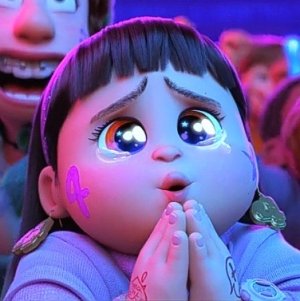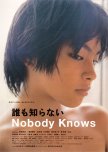Hirozuki Koreeda draws inspiration from critically acclaimed director of Tokyo Story (sometimes said as the greatest film ever made...), Yasujiro Ozu who is known by his simplistic style and portrayal of Japanese family. Indeed, Koreeda delivers Nobody Knows with intense simplicity, precise details and raw emotions.
Inspired by true events (although fictionalized a little bit) by the Sugamo Child Abandonment Case, Koreeda presents an euphemized, less grim telling of the true events. It's a melodrama that's not depicted as a melodrama but carries the same intense and impact. I absolutely loved this film from the start to finish. Koreeda channels a contemplative style where details, time and dialogue drives the storytelling forward through its characters' actions. He maximizes the potential of his actors because it's presented in a way that's not exaggerated, not hyperbolic and not overly dramatic despite the film's central theme and plot.
I absolutely loved this film no doubt. Koreeda shows the passage of time through precise details from close-ups of feet, hands, tearing away of nail-polish, changing of the hair, color of the clothes and so on. That little Tokyo apartment depicts all the passage of time. The long cuts and the sudden shots of the children all show raw vividness and sincerity, it's as if they are being shot in their natural state which is how Koreeda really wanted it. The bond and the chemistry between all four children speaks volume and makes their presence feel very sentimental.
All four actors have zero acting experience prior to this film and you know what? That doesn't matter because it just feels so natural and so real that it doesn't matter. Young Yuki is just adorable. Shigeru though crazy is just cheerful. Kyoko is just simple and big brother Akira exhibits a boy-beyond-his-years. You see how the children change through their eyes and it's a very different perspective given to us as audience. The limited presence of adults did not matter because the young ensemble dominated the film well enough. Despite the serious subject, you cannot help but hate the mother (played by J-Pop star, YOU which IMO is a good choice) because each time she's on screen, she's shown as a bubbly, lovable mother. YOU's acting of a mother that craves love, somehow childish and the shots of putting on make-up all show that she craves the carefree life. But you can't hate her for that and Koreeda does that well. He also doesn't make you feel pity for the children instead he makes you admire them. These are all channeling positive emotions yet it's not a make-good film, it's a poignant coming-of-age portrayal.
Yuya Yagira, only 12 when he made this film, won Best Actor at Cannes at 14 for his role in this film beating famous names like Tom Hanks and being one of the youngest actor to win the award plus the first Japanese to do so. And he deserves it. Yagira acts with his eyes. He keeps the same all stoic face even when he's angry, when he's tired or when he just wants to run away from it all. He keeps the face. But it's the eyes that does the acting. He exhibits a maturity that's trapped in a child's body. A role where one is forced to grow up is shown so well through the children's little desire of toys, of games, to time outside of that cramp apartment, of friends, of baseball - these are all little details that Koreeda, the children and Yagira depict with intense vibrancy. Yagira is the anchor of this film showing such an emotionally complex portrayal of Akira.
The aesthetics of this film is just so nostalgic. Despite the very melodramatic theme, it doesn't feel grim or sorrowful so as a viewer, you feel hopeful. It's just so light that you can't help but feel good. With the in-depth use of camera, you are in there with them sharing their secret and you are helpless to do anything. Everything is overwhelming. But it's the overwhelming that makes you feel helpless as a viewer. This is great engagement between you and the film.
Koreeda uses symbolism, foreshdowing recurring shots that drives storytelling forward and perfect example of "Show Don't Tell"; is channeled throughout the film and it just touches you. I can't remember how many times I smiled seeing the same details used again and again to drive the story. For example, the opening shot shows Akira touching a pink suitcase, when the family moves in to the apartment, Shigeru is in that suitcase (I'll skip explaining why as to not spoil so much) and that very suitcase is used for a crucial plot element in the final half of the film.
Recurring use of a pink nail polish as well to show the mother's desire for youth and freedom and love and how Kyoko dropped it (another symbolism) and how the mother tried to wipe the stain (another symbolism) and how Kyoko is touching the stain months after the mother leaves (another symbolism) and the fading away of the nail polish shows the passage of time. It's repetition and making use of details so precise that makes the presentation of destruction of this family look so good and so beautiful and so clean even when it shouldn't be. Koreeda knocks you off your feet even when he doesn't have to try too hard.
Nobody Knows is not a film that's suppose to make you pity these kids (the ending is open-ended in some way) but it's a raw and vivid portrayal of family, of togetherness and of love and of courage shown through little details and utmost simplicity.
Was this review helpful to you?


























